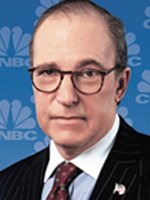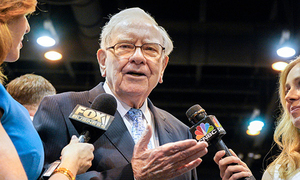 |
| 로런스 커들로 美 칼럼니스트 |
미 연방준비제도이사회(FRB)의 벤 버냉키 의장은 6월 초 미국 달러의 환율 약세를 달갑지 않은 수입물가 상승과 소비자 가격 인플레의 주된 요인으로 지목하여 언론의 커다란 관심을 끌었다. 공화당 대선후보로 확정된 존 매케인 상원의원은 이러한 버냉키의 행보를 예의 주시할 필요가 있다. 버냉키는 달러 정책의 대폭적인 변화를 시사하고 있다. 그는 스페인의 바르셀로나에서 열린 한 회의를 위해 행한 위성연설에서 FRB의 정책과 미국 경제의 저력이 달러를 안정된 강세 통화로 유지하는 핵심적인 보장 요인이 될 것이라고 말했다.
이는 버냉키가 달러 강화 의지를 사실상 밝힌 것이다. 버냉키는 달러 가치의 변동이 인플레 및 인플레 기대심리에 미치는 영향을 예의 주시하고 있다고 덧붙였다. 그는 또 미국 경제의 위험 요소들을 방비하는 정책을 계속 수립할 것이라고 말했다.
달러의 약세가 인플레를 촉진한다는 사실을 FRB 의장이 마침내 깨달았다. 그는 또한 물가를 안정시키는 FRB의 전통적인 과제를 재확인했다. 버냉키는 최근까지 방치됐던 인플레 억제 정책을 원상회복시킬 가능성이 있다. 이는 FRB가 달러와 금 같은 전향적인 시장 가격 지표들을 정책 결정에 다시 반영할 가능성도 의미한다.
이러한 일련의 발언은 버냉키가 취임 후 처음으로 달러와 인플레의 관계를 명시적으로 거론한 것을 의미한다.
행크 폴슨 미 재무장관도 최근 들어 달러 문제에 언급했다. 그러나 폴슨 장관은 달러 강세가 미국의 이익에 합치된다는 원론적 틀에 논의를 국한시키고 있다. 유감스럽게도 이런 발언은 부시 행정부의 달러 외면 정책을 완곡하게 되풀이한 것에 불과하다.
달러가 여전히 강력하고 안정된 통화라는 버냉키의 새로운 발언에 폴슨이 화답할 때까지는 백악관의 달러 강화 조치 착수 여부가 확인되지 않을 것이다. 폴슨 장관이 앞으로 “달러의 가치 절상”이란 용어를 사용할 수 있게 된다면 금상첨화가 될 것이다.
물론 폴슨으로부터 신호가 없었다면 버냉키의 위와 같은 새로운 발언이 나오지 않았을 것이다. 따라서 최근 일련의 발언은 미국 금융정책 최고 책임자들이 달러 강화에 시동을 걸었다는 가장 유망한 징조다.
버냉키의 연설에 뒤이은 외환거래에서 달러 가치가 현저히 상승하고 금 값은 내려갔다. 외환시장 선물거래자들은 FRB의 금리 인상을 예측하고 있는데 빠르면 10월 말에 단행될 가능성이 있으며 내년에는 몇 차례 연달아 인상될 것으로 점치고 있다. 필자는 FRB가 가까운 장래에 금리 인상을 서두를 것으로 보지 않는다. FRB가 달러를 강화시키는 방책은 따로 있다.
최근 몇 달 동안 FRB의 긴급 대출로 대략 4000억달러의 현금이 고전 중인 금융업계에 주입되고 있다. 따라서 앞으로 몇 달 동안 FRB 자금의 목표 금리는 2%에서 안정될 것이며 금융업계는 정상을 회복하여 수지를 맞추게 될 것이다.
한편 달러 약세의 부분적 원인이 된 과잉 현금의 일부를 축소할 경우 달러의 신뢰도가 향상될 것이다. 투기성 거래에 의한 석유 및 상품의 가격 상승이, 약세 달러로 인해 소비자 물가에 영향을 미쳤다. 달러의 신뢰가 회복될 경우 이 같은 물가 상승은 종지부를 찍을 것이다. 금년 하반기에 경제 성장이 가속화될 경우 FRB는 목표 금리를 점진적으로 인상할 수 있을 것이다.
버냉키의 조치는 미국의 경제호황 실현에 큰 도움을 줄 것이다. 따라서 매케인 후보는 버냉키의 조치에서 힌트를 얻어 달러 강세 정책을 선거운동의 전면에 내세울 필요가 있다.
현재 워싱턴에는 부실화된 정책이 많으며 달러 관리도 그 가운데 하나다. 예산의 과잉지출과 특별예산의 남용도 시정이 필요하다. 매케인은 부실화된 정책을 바로잡을 수 있다. 매케인이 개혁 메시지를 빨리 채택할수록 11월 대선의 승리에 더 다가갈 수 있다. 간단히 말해서 달러의 강화, 친 성장적인 세금과 예산 지출, 에너지 제도 개혁이 승리의 메시지가 될 수 있다.
로런스 커들로 美 칼럼니스트
워싱턴 타임스·정리=오성환 외신전문위원
For a strong dollar
Lawrence Kudlow
Fed Chairman Ben Bernanke made big news Tuesday by singling out the weak foreign-exchange value of the U.S. dollar as the principal culprit in "the unwelcome rise in import prices and consumer price inflation." Are you watching this, John McCain?
Mr. Bernanke is signaling a major policy shift on the dollar. In his speech, via satellite to a conference in Barcelona, Spain, he said Fed policy and the underlying strength of the U.S. economy "will be key factors ensuring that the dollar remains a strong and stable currency."
In effect, the Fed chief is putting a floor under the dollar. But there's more here. He added, "We are attentive to the implications of changes in the value of the dollar for inflation and inflation expectations, and will continue to formulate policy to guard against risks to both parts of our dual mandate, including the risk of an erosion in longer-term inflation expectations."
The Fed head has finally figured out that the weak dollar driving up inflation. He is also reaffirming the Fed's traditional priority of generating price stability. In the process, he may be restoring an inflation-targeting policy that has been badly undermined of late. Hopefully, this means the central bank will go back to using forward-looking market-price indicators, such as the dollar and gold, in its policy decisions.
Mr. Bernanke's comments follow on similar statements made by Fed Gov. Kevin Warsh, Dallas Fed President Dick Fisher, and Minneapolis Fed President Gary Stern.
And they mark the first time in his tenure that Mr. Bernanke has explicitly discussed the dollar-inflation connection.
Now, Treasury-man Hank Paulson in recent days has been about the dollar. But he still frames the discussion in terms of a strong dollar being in the national interest. Unfortunately, that phraseology remains a euphemistic reference to the Bush administration's long-held policy of dollar neglect. Not until Mr. Paulson uses the new Bernanke language - "that the dollar remains a strong and stable currency" - will we know the White House is shifting gears to King Dollar. Even better, Mr. Paulson could use the term "dollar appreciation."
But without question, Mr. Bernanke would not have changed his language unless he got a signoff from Mr. Paulson. So these new statements are the most hopeful sign yet that U.S. financial bigwigs are starting to get their arms around the greenback.
In currency trading following Mr. Bernanke's speech, the dollar rose significantly and gold fell. In the money markets, futures traders are pricing in a Fed rate increase, perhaps as early as late October, with a whole series of rate increases predicted for next year. I don't expect the Fed to rush into rate increases anytime soon. However, there is another way for the central bank to bolster the buck.
In recent months, the Fed's emergency-lending operations have injected something like $400 billion of cash reserves into the troubled banking system. So in the months ahead, while keeping the fed funds target rate steady at 2 percent, the Fed can gradually unwind some of these emergency loans as the banking system continues to heal and balance sheets continue to repair.
This would reduce some of the excess cash that has contributed to the weaker dollar. Meanwhile, a more reliable currency could end the speculative oil-and-commodity boom that has been leaking into consumer prices via the beleaguered greenback. Then, as the economy picks up later this year, the Fed can move to a gradual nudging-up of its target rate.
All this said, the Bernanke move is a huge plus for prosperity. And for the life of me I don't know why Sen. John McCain doesn't take a cue from Mr. Bernanke and mount a King Dollar campaign of his own.
Sen. McCain needs to speak to the food-and-oil-price-rise inflationary fears of Main Street voters across the country. Why not promote a "McCain Dollar," taking a page from Reagan and his anti-inflation run in 1980? This would not only send a message to cash-strapped families, whose incomes are being swallowed by weak-dollar food-and-gas prices. It also would send a strong-dollar message around the world to bolster American power and prestige.
There are a lot of things broken in Washington right now, including the dollar. There's overspending and earmarking. There's a ridiculously complex tax system that imposes multiple tax burdens on capital, investment and saving. There's the entitlement problem. And the energy system needs to be totally deregulated so free-market forces can promote a full portfolio of conventional and new energy sources.
Big Mac can fix what is broken in Washington, including the busted dollar. The sooner Mr. McCain adopts this reform message, the closer he's gonna get to victory in November.
Quite simply, a strong currency, along with pro-growth tax, spending, entitlement and energy reform, is the winning message.
single out:추려내다 be about:하다 bigwig:거물 beleaguer:괴롭히다
[ⓒ 세계일보 & Segye.com, 무단전재 및 재배포 금지]
![[설왕설래] 김태효, 또 구설수인가](http://img.segye.com/content/image/2024/09/05/128/20240905520272.jpg
)
![[기자가만난세상] 배달비, 누구를 위한 것일까](http://img.segye.com/content/image/2023/04/28/128/20230428515534.jpg
)
![[세계와우리] 전쟁과 ‘강대국’ 러시아](http://img.segye.com/content/image/2024/04/18/128/20240418532116.jpg
)
![[조경란의얇은소설] 어느 긴 하루의 밤](http://img.segye.com/content/image/2024/08/22/128/20240822520821.jpg
)








